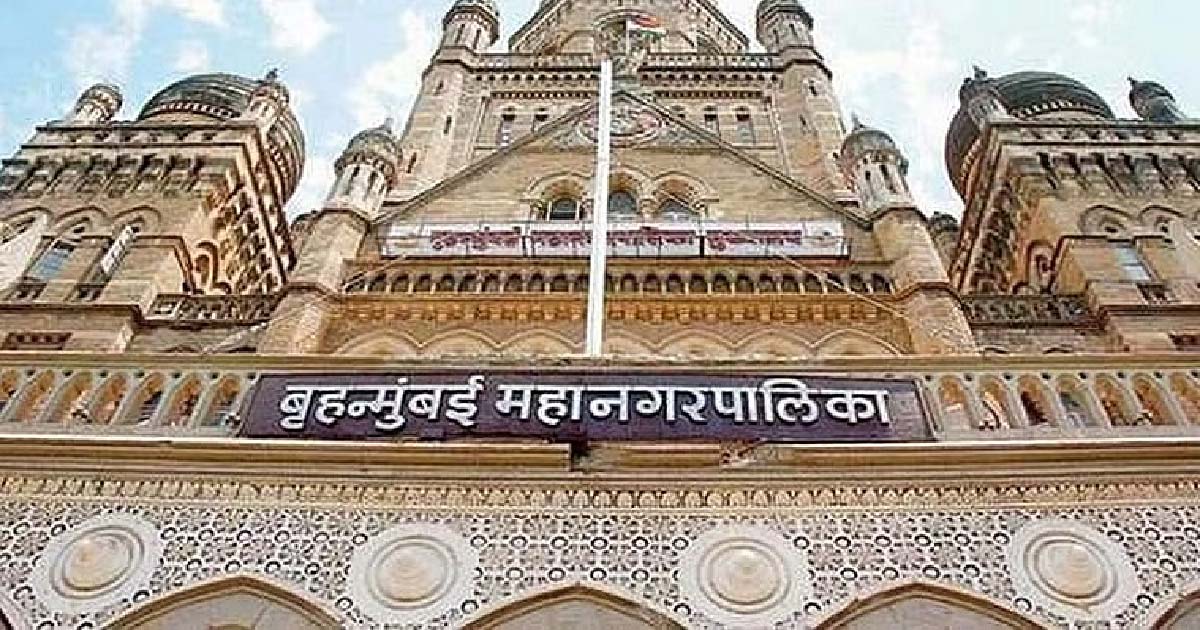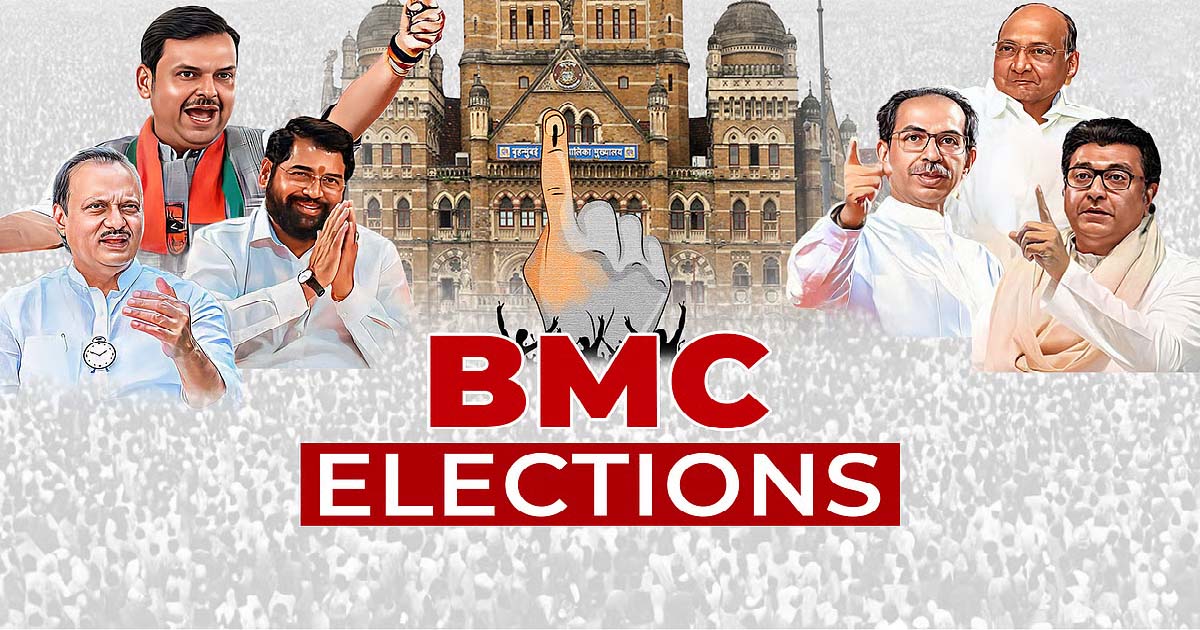Maharashtra
India accuses UNSC of ‘political considerations’ for failure to tackle terror
Raising many eyebrows, India’s External Affairs Minister S. Jaishankar on Friday directly accused the United Nations Security Council (UNSC) of ‘political considerations’ which prevents the global body from acting against terror.
“When it comes to proscribing some of these terrorists, the Security Council has regrettably been unable to act in some cases because of political considerations. This undermines our collective credibility and our collective interests,” Jaishankar said here without mincing words.
He was speaking at an informal briefing of the Counter Terrorism Committee of the UNSC in Mumbai — exactly a month ahead of the upcoming 14th anniversary of the 26/11, 2008 Mumbai terror strikes.
Jaishankar said that while one of the (10) terrorists in that attack was captured alive, prosecuted and convicted by the highest court in India, the key conspirators and planners of the 26/11 terror mayhem remain protected and unpunished.
Without naming any country, the EAM said that “our real tribute to the victims will be to rededicate ourselves to combating and eliminating the menace of terrorism… and this by stronger determination and joint action”, as terrorism poses a serious threat to international peace and security and to the entire humanity.
“We must rise above our political differences to address this scourge. The battle against terrorism must be fought on all fronts, all situations and all places. We cannot be found wanting in our efforts. As the UN Secretary-General stated, ‘Terrorism is pure evil one with which we can never compromise’,” said Jaishankar.
He said it is incumbent on all responsible members of the international community to remember the trauma of every terror victim across the world and to persevere in the efforts to bring the perpetrators of terrorism to justice, and boost the multilateral efforts by the UN to address the terror threat holistically and collectively.
Jaishankar said together “we should send out the message that the international community will never give up on holding terrorists accountable and delivering justice… 26/11 will never ever be forgotten”.
On his part, Jaishankar presented a five-point formula to grapple terror by the horns, with the UN’s coordination with other bodies.
These include targeting ‘terror financing’ to hit back at and counter terrorism with the UN joining hands with others like the FATF and Egmont Group, transparent and effective functioning of the UNSC sanctions to ensure they not rendered worthless for ‘political reasons’.
“Objective and evidence-based proposals for listing of terrorist groups, especially those that curb their access to financial resources must be seen through,” he urged.
Jaishankar sought international cooperation and concerted action against terrorists and their sponsors, by dismantling their safe havens, sanctuaries, training grounds, financial and ideological plus political support structures to weed out the terror plague.
He also said terrorism’s well-established nexus with ‘transnational organised crime, illicit drugs and arms trafficking’ must be recognised and multilateral efforts must be made to break them.
The EAM said over the years, the terror groups have diversified their funding portfolios by exploiting the new or emerging but anonymous technologies like ‘virtual currencies’ for raising funds or financing their activities, more of which will be deliberated in Delhi on Saturday.
He remembered the UNSC’s condemnation of the 26/11 terror attacks — “The Members of the Council underline the need to bring perpetrators, organizers, financiers, and sponsors of these reprehensible acts of terrorism to justice and urged all States to cooperate with the Indian authorities in this regard. All acts of terrorism are criminal and unjustifiable, regardless of their motivation”.
Present at meeting on Friday — held at the Hotel Taj Mahal Palace, one of the sites targeted in the 26/11 terror attacks — were the current UNSC President Michael Moussa Adamo who is also the Foreign Minister of Gabon, UN Under-Secretary-General for Counter-Terrorism Vladimir Voronkov, India’s Permanent Representative to the UN Ruchira Kamboj, Ministers, heads of delegations of the UNSC Member-States and civil society stakeholders from across the world.
Maharashtra
Mumbai Civic Healthcare Goes Digital: BMC Launches Health Chatbot To Improve Access, Transparency And Efficiency

Mumbai, Dec 15: In a major step towards strengthening digital public healthcare, the Brihanmumbai Municipal Corporation (BMC) on Monday launched a health chatbot aimed at improving accessibility, transparency, and efficiency of healthcare services for citizens.
The digital service was inaugurated by State Minister for Information Technology and Cultural Affairs and Mumbai Suburban District Guardian Minister Ashish Shelar. The initiative marks another milestone in BMC’s ongoing efforts to integrate technology with civic health services.
As part of its digital transformation drive, the health chatbot will provide citizens with easy access to verified health-related information, including disease awareness, preventive care, public health campaigns, and details of nearby healthcare facilities. The chatbot is available on the mobile number 9892993368.
BMC Commissioner and Administrator Bhushan Gagrani said the initiative aligns with the civic body’s vision of making public health information easily accessible through digital platforms. Technology-driven services, he noted, will save citizens’ time and play a crucial role during healthcare emergencies.
Through the chatbot, citizens can access information on online OPD appointment registration, health certificates, licensing procedures, birth and death certificates, marriage registration, disability certificates, and maternity home licences. An online registration facility for health centres is expected to significantly reduce waiting times and improve convenience.
In the coming months, the chatbot will also provide details of state and central government health schemes. The BMC further plans to launch a dedicated healthcare website, along with OPD and bed-availability dashboards, to simplify access to health services and real-time information for Mumbai’s residents.
Maharashtra
Police attacked during group clash in Kandivali… Five arrested, police in action mode, case registered

Mumbai: The police have claimed to have arrested five people for attacking the police in the Kandivali area, while two are still absconding. According to details, some people attacked the police in Ekta Nagar, Kandivali, and after this attack, the video went viral on social media, after which the police immediately registered a case and arrested five accused. According to details, at 8:45 pm last night, violence was going on between two groups in Laljipara Ekta Nagar. Bhim Kanojia, a member of one of the groups, complained to the bat marshal and the bat marshal here instructed Pappu Jha to go to the police station and asked him to sit in the van. During this, he started arguing and arguing with the complainant, in addition to abusing him. When police officer Kanbhare and police havaldar Khot reached to help the complainant, he also beat them up and interfered in official work, after which the police arrested Vicky Singh, Pappu Jha from the spot in this case, while Chandrakant Jha, Suman Jha and Guddu Jha were arrested later. So far, 5 people have been arrested in this case. The police have registered a case against the accused on the complaint of the complainant Sagar Saddam Babar, a 32-year-old policeman. The police have booked them under sections of BNS. A case has been registered under sections 121(1), 221, 189(3), 191(2), 190, 324, 352 of the IPC and the search for the absconding accused is underway, confirmed DCP Sandeep Jadhav. He said that CCTV footage is also being taken for further action in this matter and a police team has been mobilized to identify the accused. The incidents of attacks on the police have increased to an alarming extent, after which the issue of police safety has now arisen. While the police provide protection to the public, now the attack on the police by miscreants is alarming. Earlier, an attack was also carried out on the police in Malad, after which a case was registered and the accused were paraded.
Maharashtra
Mumbai Civic Body Elections to Be Held on January 15; Counting Scheduled for January 16

Mumbai: (Kamar Ansari) The State Election Commission has announced that elections to the Brihanmumbai Municipal Corporation (BMC) will be conducted on January 15, with the counting of votes scheduled for January 16. The announcement brings clarity on the long-awaited civic polls in India’s financial capital.
The Election Commission announced the schedule for elections to 29 municipal corporations, stating that nomination papers for all municipal corporation polls will be accepted only in offline mode, and the voter list will be based on the July 25, 2025 electoral roll.
Election Schedule
Nomination Period: December 23 to December 30, 2025
Scrutiny of Applications: December 31, 2025
Withdrawal of Candidature: January 2, 2026
Final Candidate List & Symbol Allotment: January 3, 2026
Polling Date: January 15, 2026
Counting of Votes: January 16, 2026
The Mumbai civic elections form part of the broader Maharashtra local body election process, which includes polls for municipal corporations, municipal councils, and other local bodies across the state. The decision aims to complete the entire election process within the stipulated legal timeframe.
The BMC, India’s richest civic body, has been functioning without an elected house for several years and has remained under administrative control. The upcoming elections are expected to restore elected representation and accountability in the city’s civic governance.
Political parties have begun preparations for an intensive campaign, with key civic issues such as road conditions, water supply, solid waste management, flood control, housing redevelopment, and environmental protection expected to dominate the election discourse.
The State Election Commission is likely to issue a detailed election programme in the coming days, including nomination schedules, scrutiny dates, and campaigning guidelines. Security arrangements and election machinery are also being put in place to ensure a smooth and transparent polling process across Mumbai.
The announcement has generated significant political activity, with all major parties viewing the BMC elections as a crucial contest that will shape Mumbai’s administrative and political future.
-

 Crime3 years ago
Crime3 years agoClass 10 student jumps to death in Jaipur
-

 Maharashtra1 year ago
Maharashtra1 year agoMumbai Local Train Update: Central Railway’s New Timetable Comes Into Effect; Check Full List Of Revised Timings & Stations
-

 Maharashtra1 year ago
Maharashtra1 year agoMumbai To Go Toll-Free Tonight! Maharashtra Govt Announces Complete Toll Waiver For Light Motor Vehicles At All 5 Entry Points Of City
-

 Maharashtra1 year ago
Maharashtra1 year agoFalse photo of Imtiaz Jaleel’s rally, exposing the fooling conspiracy
-

 National News1 year ago
National News1 year agoMinistry of Railways rolls out Special Drive 4.0 with focus on digitisation, cleanliness, inclusiveness and grievance redressal
-

 Maharashtra1 year ago
Maharashtra1 year agoMaharashtra Elections 2024: Mumbai Metro & BEST Services Extended Till Midnight On Voting Day
-

 National News1 year ago
National News1 year agoJ&K: 4 Jawans Killed, 28 Injured After Bus Carrying BSF Personnel For Poll Duty Falls Into Gorge In Budgam; Terrifying Visuals Surface
-

 Crime1 year ago
Crime1 year agoBaba Siddique Murder: Mumbai Police Unable To Get Lawrence Bishnoi Custody Due To Home Ministry Order, Says Report












